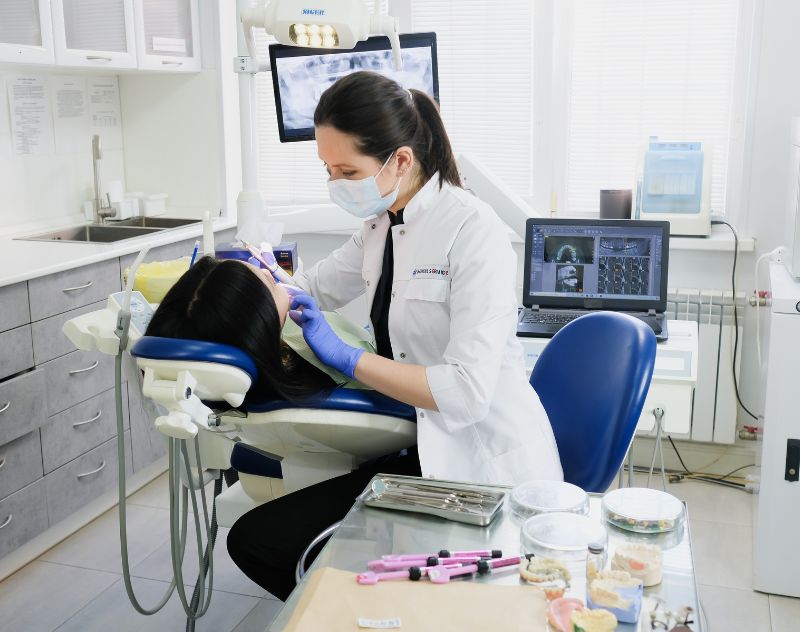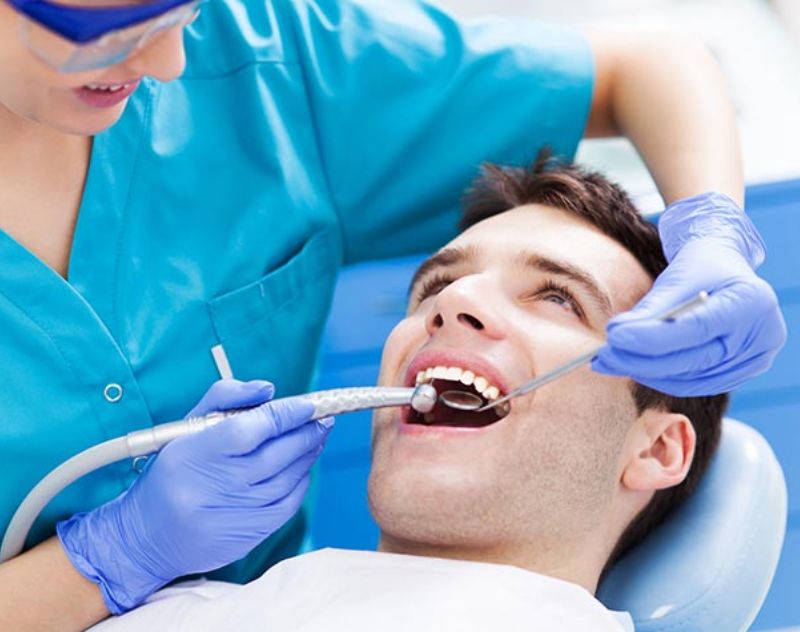Dental treatments are essential for maintaining oral health, but many individuals experience discomfort or pain after undergoing certain procedures. Whether it’s a routine cleaning, a filling, or a more complex dental surgery, managing post-procedure discomfort is crucial for a smooth recovery and overall well-being. The blog will explore tips to help you navigate and alleviate discomfort after dental treatments.
Additionally, if you reside in Canada, it will benefit you even more after knowing the great services offered for Saskatoon dental treatment.
Tips for Managing Post-Procedure Discomfort
- Follow Post-Procedure Instructions:
- Take Prescribed Medications
- Apply Ice Packs
- Stay Hydrated
- Avoid Hot and Cold Foods
- Soft Diet
- Saltwater Rinse
- Communicate with Experts
- Rest and Relaxation
Follow Post-Procedure Instructions
One of the first and most important steps in managing post-procedure discomfort is to follow the instructions provided by your dentist carefully. Dentists typically provide specific guidelines on activities to avoid, medications to take, and other measures to ensure a smooth recovery. Ignoring these instructions can prolong discomfort and even lead to complications.
Take Prescribed Medications
Your dentist may prescribe pain relievers or antibiotics to manage pain and prevent infection. It’s crucial to take these medications as directed. If you have any concerns or allergies, discuss them with your dentist before taking any prescribed drugs. Pain medication should be taken before the anesthesia wears off to stay ahead of the pain and allow for a more comfortable recovery.
Apply Ice Packs
Swelling and inflammation are common after dental procedures. Applying an ice pack to the affected area can help reduce swelling and numb the pain. Use a clean cloth to wrap the ice pack and avoid direct contact with the skin to prevent frostbite. Apply the ice pack for 15-20 minutes with breaks in between.
Stay Hydrated
Water intake is important for good health and better post-operation healing. Water in hydration flushes toxins out of the body and aids in healing. Furthermore, it helps avoid dry mouth, another condition associated with some dental operations.
Avoid Hot and Cold Foods
After dental treatments, your teeth and gums may be sensitive. Avoid consuming extremely hot or cold foods and beverages, as they can trigger discomfort. Opt for room temperature or lukewarm items to minimize sensitivity and promote a more comfortable healing process.
Soft Diet
Eating soft and easily chewable foods can prevent unnecessary strain on teeth and gums. Opt for soups, mashed potatoes, yogurt, and smoothies during the initial days of recovery. Avoid hard, crunchy, or sticky foods irritating the treated area.

Saltwater Rinse
A saltwater rinse can help keep the treated area clean and reduce the risk of infection. Mix a teaspoon of salt in warm water and gently rinse your mouth several times daily, especially after meals. This simple yet effective remedy can promote healing and alleviate discomfort.
Maintain Oral Hygiene
While being gentle is crucial, maintaining good oral hygiene is essential for a smooth recovery. Brush your teeth gently, avoiding the treated area, and use a soft-bristled toothbrush. Be consistent with your oral care routine to prevent complications and promote dental health.
Rest and Relaxation
The rest is an important element in recovery. You should avoid heavy exercises, rest appropriately, and allow your body to recuperate. While taking care of yourself, rest and allow yourself to relax because stress and fatigue only enhance discomfort.
Communicate with Your Dentist
If you experience prolonged or severe discomfort, swelling, or any unexpected symptoms, it’s crucial to communicate with your dentist promptly. They can provide guidance reassurance, or adjust your treatment plan if necessary.
Wrapping Up!
Managing post-procedure discomfort by dental clinic Saskatoon is a crucial aspect of dental care that can significantly impact your overall experience and recovery. By following these tips and staying proactive in your aftercare, you can navigate the discomfort associated with dental treatments and ensure a smoother and more comfortable healing process. Open communication with your dentist is key to addressing concerns and optimizing your oral health journey.
Lastly, West 14 Dental is a highly reputed team of dentists based in Saskatoon and offers some of the best dental services to people at the most reasonable prices. You can visit them immediately and resolve dental and oral problems by getting the best treatment.
Frequently Ask Questions
What helps with pain after dental work?
Pain relievers like ibuprofen or acetaminophen can help with pain after dental work.
What is recommended for managing moderate to severe postoperative dental pain?
Your dentist may recommend moderate to severe postoperative dental pain and prescription pain medications.
What are the post-operative instructions for a dental patient?
Follow post-operative instructions, including taking prescribed medications, avoiding certain foods, and maintaining good oral hygiene.
How can I promote healing after dental surgery?
Promote healing after dental surgery by resting, applying ice packs, and adhering to a soft diet while avoiding tobacco and alcohol.

